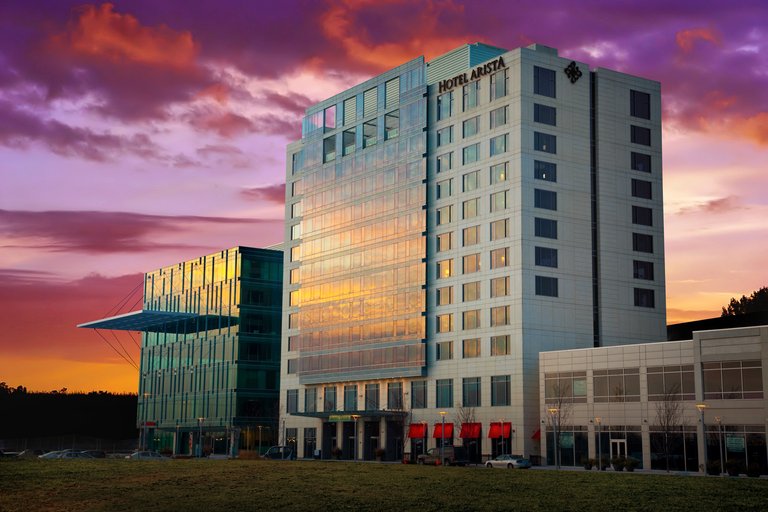The Artificial Urban Real Estate Bubble Is Popping
Many are wondering what is going on with commercial real estate. Of course it is down. However, what will it take for it to return?
In this article, we will clearly see this is not going to happen. Commercial real estate, in many major cities, is going to have to reset at a much lower level. This is in alignment with technological trends. It is also the result of an artificial bubble popping.

Commercial Real Estate In Major Cities Will Never Return To Previous Levels
People do not realize how rapidly things are changing. They also fail to see the enormous implications in terms of wide spread disruption that is taking place.
We also are witnessing the popping of one of the longest running bubbles we have ever seen.
Commercial real estate has been artificially propped up for at least 35 years, Since globalization really become common, we saw the distortion in the job market. Urban areas has the monopoly on the high paying jobs, causing a push towards urbanization.
This created a frenzy which became self reinforcing. Cities grew meaning companies could find better quality (read better educated) workers which, in turn, pushed more graduates to relocate to these areas after graduation.
It is now at the point it is popping.
Technology is now just giving us some insight into what is possible with regards to remote work. Anyone who looks at a screen which is connected to the cloud will be able to do that from anywhere in the work. satellite Internet is going to guarantee this.
Thus, the monopoly that urban areas had for high paying jobs is being broken. Even if someone takes a bit less money to work remote, their cost of living can be significantly less. This also can feed into the quality of life.
Some are talking about his the value of the properties has dropped $1.2 trillion, going from $3.0 to about $1.8. This makes sense since that is what happens when things are overinflated.
The reality is that populations, over the next decade, of cities is going to decline. While many will point to a host of issues, it really is economic.
The Income Statement
Many assert that there is a move to promoting those who are in the office. In other words, they are making the case that more money is given to those who are not part of remote work.
This is a misunderstanding of the situation in my view.
When we look at the income statement, we see there are two sides to the financial document. This means that income is only one part of the equation. expenses are also tracked.
What do you think happens when one, who is overlooked for a promotion and, presumably, a pay raise, is enjoying a cost of living that is 30% less than if he or she had to reside close to the office? This is a difference that is commonplace among urban to rural areas.
It is also something that expands as we start to take other countries into account. The idea of relocating to a less expensive area is going to hold high appeal to many people.
End of Remote Work?
Some claim that remote work is just a fad and will end up passing. This is not the case.
The idea of an Executive requiring the workforce to come into the office (in most instances) will, at some point, be as absurd an idea as having people come into the office, sit down at a typewriter, type out a letter, and mail it. While that was normal 50 years ago, today it is preposterous.
Remote work is not a fad. Instead, it is keeping with technological progress. We are seeing computer systems become more robust, faster, and making "the world smaller". At the same time, communication systems are improving, assisting in this process.
We are basically an information economy which, not surprisingly, means the digital realm is exploding. This is not geography based. Therefore, anything pertaining to geographic location is going to be secondary in the future.
The costs in these urbans got to the point where they are out of control. It sucks for all those who have exposure to commercial real estate which is a lot more than most think. pension funds, for example, are heavily invested in this arena. Nevertheless, an adjustment is coming.
That doesn't mean these areas are dead. There will be a resetting of the market, with prices being at a different level. defaults will occur as we are seeing in China, causing a lot of pain. Once this is all cleared out, we will see a new process start.
Posted Using InLeo Alpha
I think this is a big problem that China is facing. They have a lot of uninhabited condos, and some are just being demolished. It isn't as bad in the Philippines, but condo rental income has gone down because of a lack of tenants. There are more available than demand, so a lot of owners are undercutting each other. I agree that remote work is here to stay.
My views is the China growth story ended over a decade ago. Each time their GDP took a turn for the worse, they put forth massive infrastructure and construction spending. This is great for the economy but a problem when you dont need them. So now they have a lot of "bridges to nowhere".
Will the implosion of medium banks holding commercial real estate be less destructive than the subprime housing bubble of 2008? Only time will tell, but at least it seems we are more prepared for it this time around.